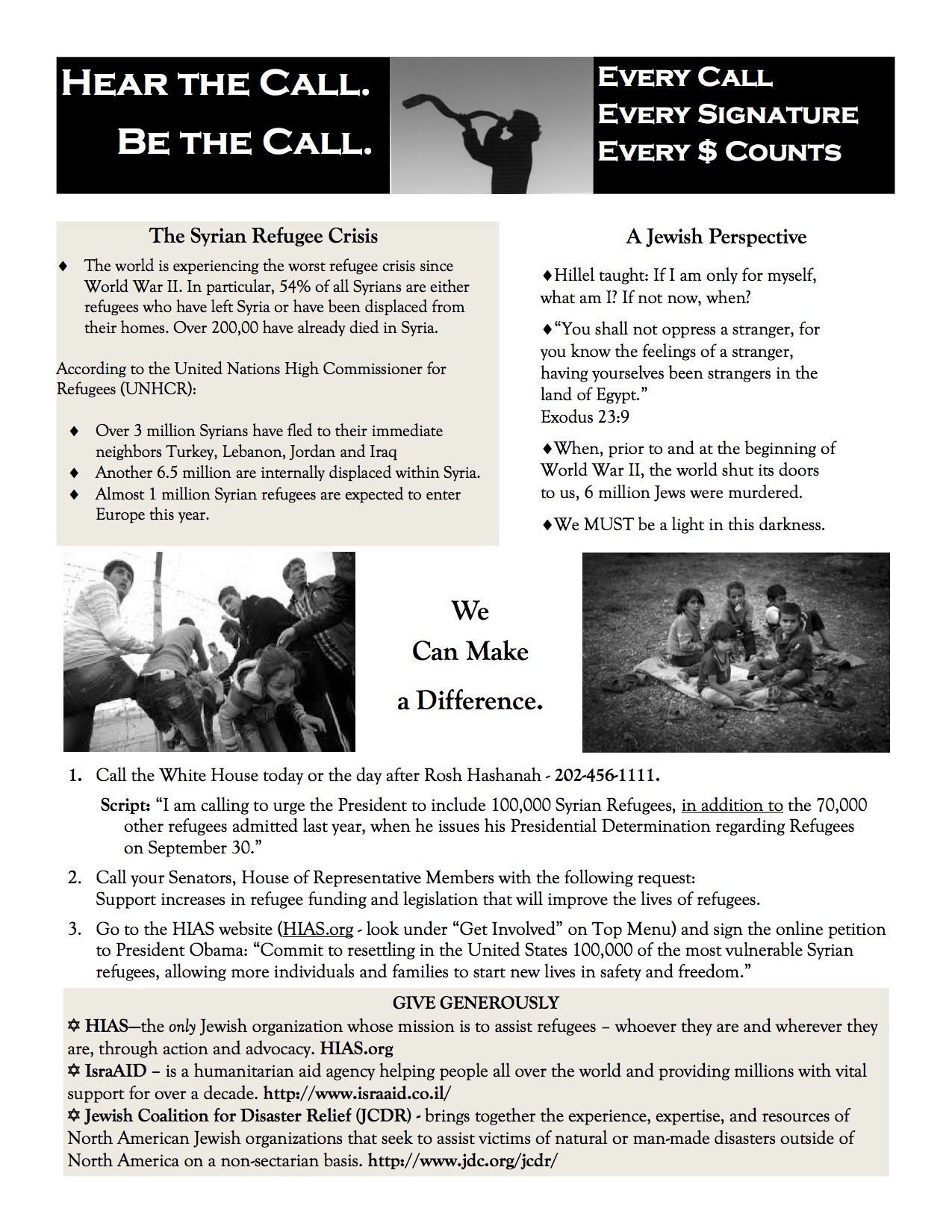Heroes, it is said, act without thinking of the fear before them. Fear can paralyze, placing us in what we classically describe as Mitzrayim, the narrow places. Although most of us are not heroes, most of us are people who respond with empathy and compassion to those in need.
When we rise above our fears we can achieve great things. When we act out of fear, we are reflexive and often myopic and ultimately selfish in our self-protectiveness.
The unfolding tragedies in the Middle East, the hopes of an Arab Spring becoming, to extend the metaphor, the harshest of Winters, have left hundreds of thousands dead and millions displaced. What was once considered home is now an impossible place of hopelessness and despair.
As Americans, as Jews and as human beings we are compelled to answer the immediate desperate cry for help. World governments, first and foremost the United States, must tackle the underlying causes of this devastation work to resolve these problems. But you and I can make a difference to the people in immediate risk for their lives. We can support humanitarian efforts to provide sanctuary, medicine and food and further we can actively support efforts to resettle refugees.
Refugees are carefully screened before granted permission to come to the United States. HIAS is in the forefront of coordinating with government agencies after these people are vetted. Our fear cannot let us turn a blind eye and keep us from engaging in the compassionate work our tradition commands.
L’Shana Tova

